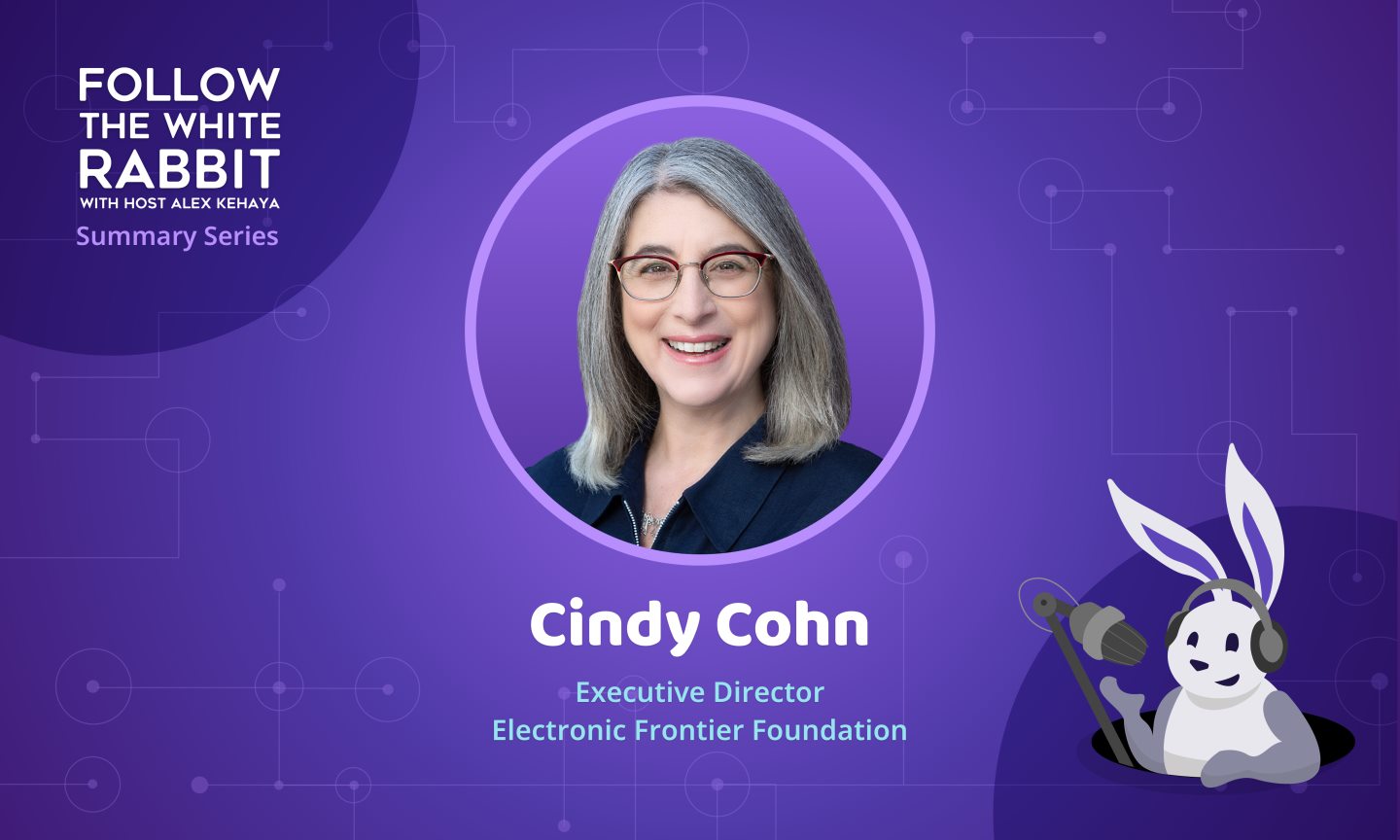
Cindy Cohn speaks with Orchid about online privacy and the Fourth Amendment
Aug 3, 2020Many people have a vague sense that governments use the Internet as a place to gather intelligence. What most may not know is the depth of state actors' commitment to maximizing their power to gather data on people, including their own citizens, en masse under the pretext of national security.
Cindy Cohn, Executive Director of the Electronic Frontier Foundation (EFF), is one of those working to stop, and even reverse, this shadowy digital surveillance. She sits down with our own Alex Kehaya on the most recent installment of Follow the White Rabbit. EFF, the oldest and largest digital civil liberties organization in the world, has spent 30 years working to promote justice and transparency when it comes to our online rights.
In this episode, Cindy and Alex discuss the little-known history of online encryption and the battles that have already been fought to make today's Internet privacy -- credit card encryption, private messages, and services such as VPNs -- possible even over the objections of the government. For one simple reason: "When we go online, our rights come with us," says Cindy.
According to Cindy, these powers often exceed the constitutional limits placed on surveillance in the physical world, and many of the practices take place under the authority of secret letters and little-known laws. For example, in the United States so-called "national security letter" statutes let the government demand information from companies with nothing more than a letter saying the issue pertains to national security. With such a letter, government agencies can access all the data that exists on the subject of the letter -- not simply emails or texts, but Internet browsing history, location data, and more.
This opens loopholes for the government to behave in ways it never could in the physical world. For one thing, federal officials regularly tap into the Internet's backbone at key junctures where packets cross the country's border. Because of the way online traffic flows, this captures huge amounts of domestic traffic in addition to the foreign "threats" that are ostensibly targeted. And if they find evidence of something they weren't actually looking for, they can and do initiate domestic prosecutions based on this "collateral" information. Effectively, the U.S. government operates an enormous dragnet over the Internet -- in spite of the Fourth Amendment's prohibition of "unlawful search and seizure."
Follow us down the rabbit hole: listen to the conversation here or on your favorite streaming service.
If you enjoyed this blog, subscribe here for privacy news, commentary, and product updates from Orchid.



